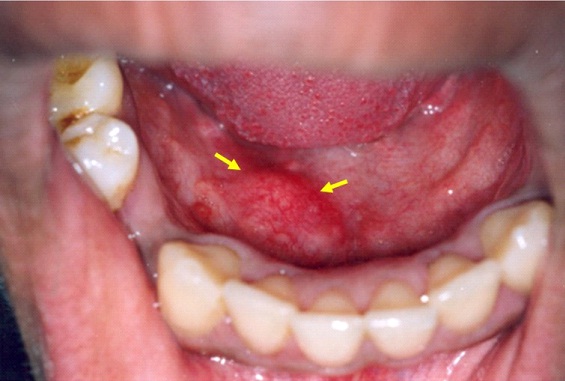Salivary Gland Cancer Symptoms, Causes, Risk Factors, Diagnosis and Treatment

What Is Salivary Gland Cancer?
It is a rare type of cancer which starts in your salivary gland. Moreover, the cancer can start to develop in any of your salivary gland, in the throat, neck or mouth. More specifically, salivary glands are responsible for producing saliva. Saliva keeps our mouth moist and helps in the process of digestion.
All together, we have three main salivary glands, positioned behind and under our jaw, namely, submandibular, sublingual and parotid. Besides these, a number of other minute salivary glands exist inside our cheeks, in the lips and all over our throat and mouth.
More often, it develops in the parotid gland, positioned in front of our ear. Usually, surgery is recommended for treating salivary gland cancer. Few other treatments are chemotherapy and radiation therapy.
What Are The Symptoms Of Salivary Gland Cancer?
Salivary gland tumor can trigger the following symptoms:
- Swelling or lump in the mouth or neck, or near the jaw.
- Difficulty swallowing.
- Muscle weakness that may occur on a side of face.
- Numbness in a part of face.
- Difficulty opening the mouth widely
- Continuous pain in your salivary glands area.
What Causes Salivary Gland Cancer?
The precise cause of salivary gland cancer is ambiguous. However, doctors believe it occurs when certain cells present in the salivary gland tend to develop mutations. In addition, these mutations in the cell’s DNA cause them to produce and divide speedily. Even when healthy cells expire, these mutated ones continue to survive. They then accumulate and shape a tumor, which can attack the surrounding tissue.
What Are The Risk Factors Of Salivary Gland Cancer?
Few factors that can help in contributing salivary gland cancer are:
- Radiation exposure: for example radiation for treating neck and head cancers, tend to raise the chances of developing salivary gland cancer.
- Older adults: even though, it can occur regardless of age, yet it is more common in people of older age.
How Is Salivary Gland Cancer Diagnosis?
In order to diagnose salivary gland cancer, the following procedures and test will be conducted:
Imaging tests.
- Physical exam.
- Sample of tissue for lab testing.
- In case the patient is detected with salivary gland cancer, the next step, the doctor will take is to identify the stage of cancer the patient has reached. This tends to help in preparing the suitable treatment plan for the case. Besides, this will also give him an idea regarding the prognosis.
How Is Salivary Gland Cancer Treatment?
Its treatment tends to rely on certain factors including stage, size, preferences and overall health of the patient. Often, the treatment of salivary gland cancer consists of surgery, accompanied with radiation therapy. Not necessarily, radiation therapy is needed. Besides, chemotherapy is another treatment option for the advanced cases of salivary gland cancer, wherein the cancer has managed to spread distant body areas of the patients.
Related Articles:
Stomach Cancer Symptoms, Causes, Diagnosis and Treatment
Kidney Cancer Symptoms, Causes, Diagnosis and Treatment
Throat Cancer Symptoms, Causes, Diagnosis and Treatment
Colon Cancer Symptoms, Causes, Diagnosis and Treatment
Walnuts; Eat Them For Beauty, Dementia, Cancer, Pregnancy, Stress And So Much More
Endometrial Cancer Symptoms, Causes, Risk Factors, Complications, Diagnosis and Treatment
Breast Cancer – How To Avoid It
The Healthy Diet For Cancer Patients
Eating Black Beans May Ward Off Cancer From Your Life, Read To Find Out How?
Kidney Cancer – Some Common Types
Factors Around Us Play A Much Larger Role: Cancer Isn’t All In Your Genes
By : Natural Health News




